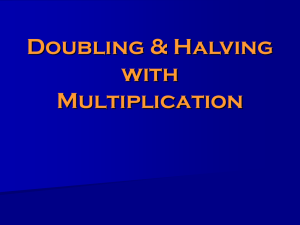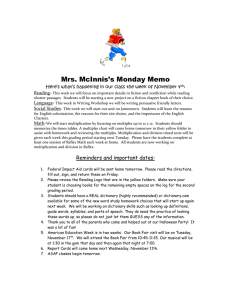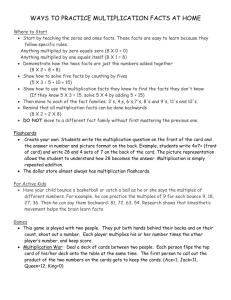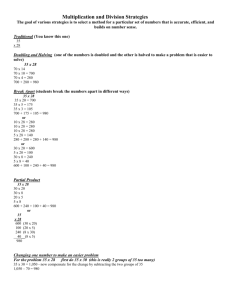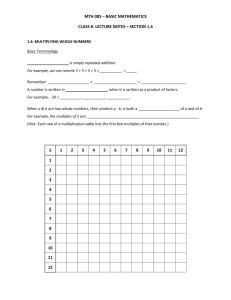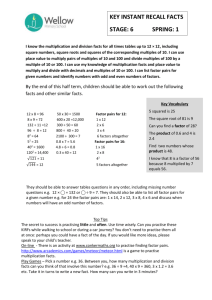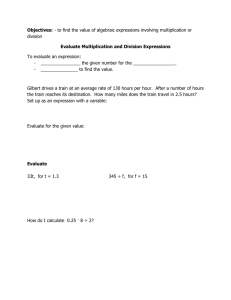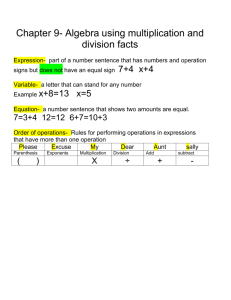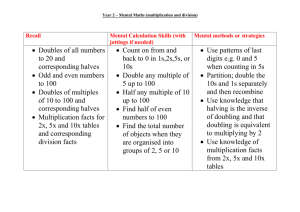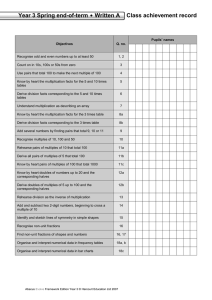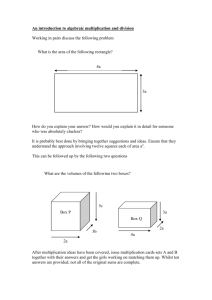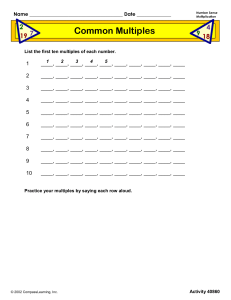Build Math Skills at Home
advertisement
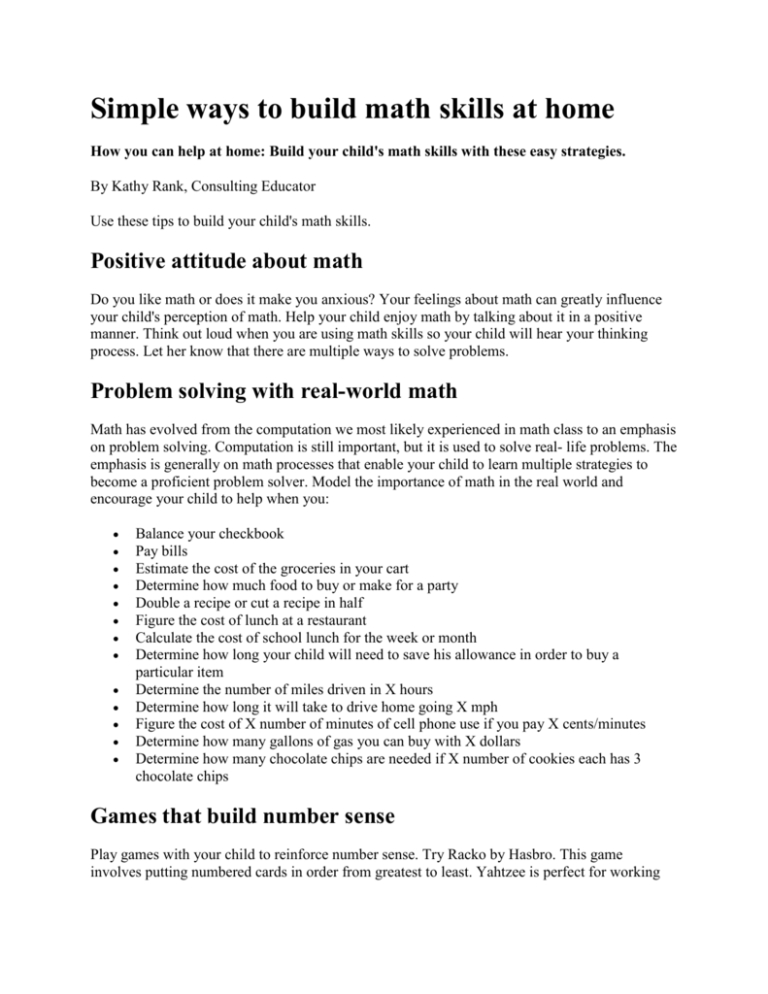
Simple ways to build math skills at home How you can help at home: Build your child's math skills with these easy strategies. By Kathy Rank, Consulting Educator Use these tips to build your child's math skills. Positive attitude about math Do you like math or does it make you anxious? Your feelings about math can greatly influence your child's perception of math. Help your child enjoy math by talking about it in a positive manner. Think out loud when you are using math skills so your child will hear your thinking process. Let her know that there are multiple ways to solve problems. Problem solving with real-world math Math has evolved from the computation we most likely experienced in math class to an emphasis on problem solving. Computation is still important, but it is used to solve real- life problems. The emphasis is generally on math processes that enable your child to learn multiple strategies to become a proficient problem solver. Model the importance of math in the real world and encourage your child to help when you: Balance your checkbook Pay bills Estimate the cost of the groceries in your cart Determine how much food to buy or make for a party Double a recipe or cut a recipe in half Figure the cost of lunch at a restaurant Calculate the cost of school lunch for the week or month Determine how long your child will need to save his allowance in order to buy a particular item Determine the number of miles driven in X hours Determine how long it will take to drive home going X mph Figure the cost of X number of minutes of cell phone use if you pay X cents/minutes Determine how many gallons of gas you can buy with X dollars Determine how many chocolate chips are needed if X number of cookies each has 3 chocolate chips Games that build number sense Play games with your child to reinforce number sense. Try Racko by Hasbro. This game involves putting numbered cards in order from greatest to least. Yahtzee is perfect for working on multiplication facts and reinforcing addition skills. There are many fun card and dice games that utilize math skills. Practice multiplication facts Your child is expected to know multiplication facts. Have your child bounce a basketball as he says the multiples of different numbers. For example, he can practice the multiples of 9 for each bounce 9, 18, 27, 36. Then he can say them backward: 81, 72, 63, 54. Research shows that kinesthetic movement helps the brain learn facts.
